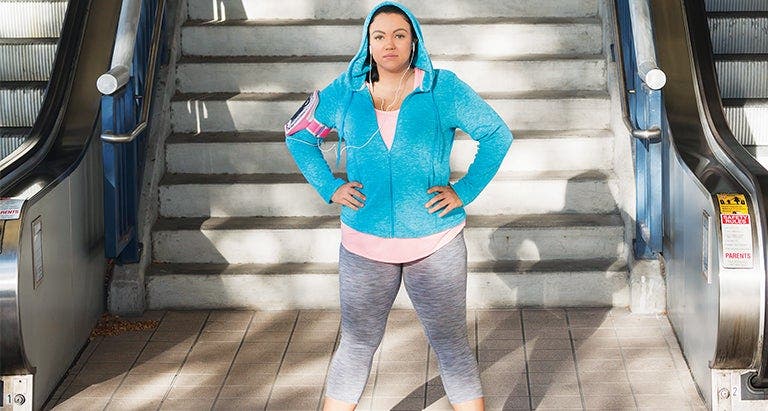Stand Up to Stigma


When you think about it, it’s bizarre and silly that someone’s body size could trigger unkind remarks or negative opinions—but as we know, discrimination has many targets. What makes weight-related stigma different, as your Weekly discusses, is that often those of us who have been subject to it may buy into it ourselves! And that can make it even more challenging to overcome.
Weight stigma is especially common for women and can come from anyone, even a loved one or a passerby. Turning to food as a way to cope with weight stigma is common —but, of course, that can lead to further weight gain. What's more, those who tend to take the stigma to heart and blame themselves often suffer lower self-esteem and even depression.
A good way shed the self-blame is to consciously face those painful feelings, and reality check the unhelpful thoughts that might bubble up ("I do look horrible; no wonder that woman rolled her eyes at me.") to come to more realistic, helpful thoughts ("I have the right to look however I want—and as it happens I look good: My clothes are clean, flattering, and a nice colour.")
Admittedly, becoming comfortable with your body takes time—especially when it seems like the world is conspiring to make you feel bad about it. Sometimes, a simple physical switch might help: Adjusting your posture can help you appear—and feel!—more confident instantly. Standing up straight with your shoulders back can also give you the sensation of being taller and leaner.
Seems too simple to be true? Try this exercise:
Sit in a chair with your chin down and a frown on your face, your rib cage crunched and your shoulders slumped. Think about happy things, and try to connect with happy feelings. Isn't it hard Now, smile, lift your rib cage, center your weight, and sit tall. Think about something that makes you worried, angry, or sad. Look at what happens to your body!
